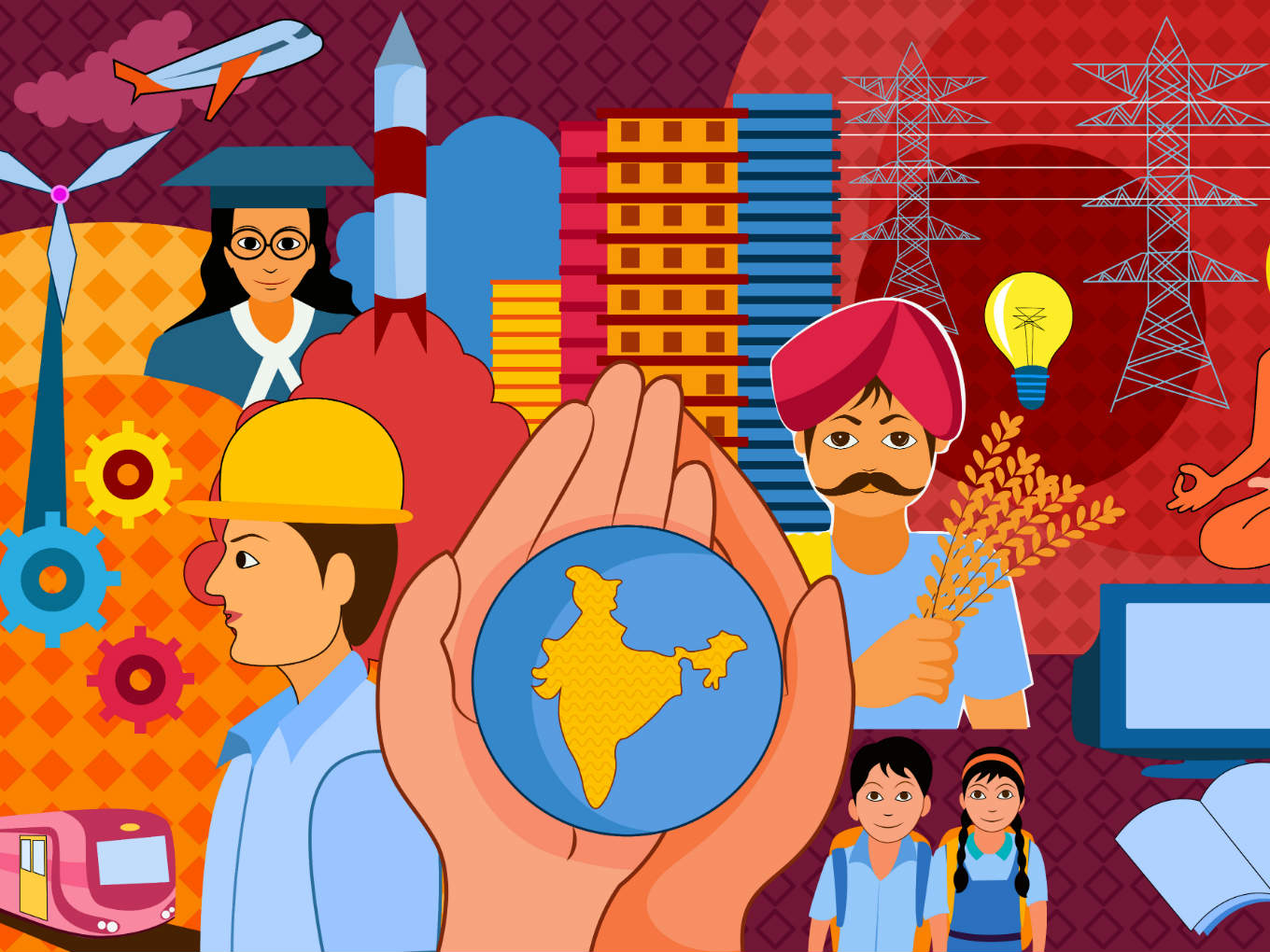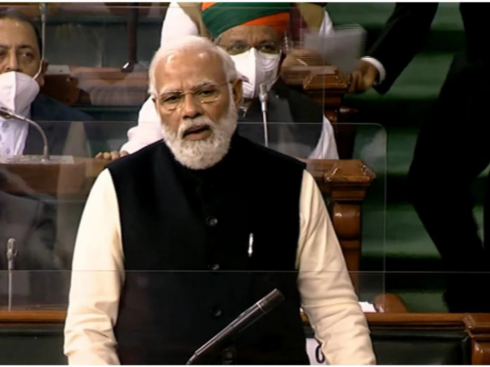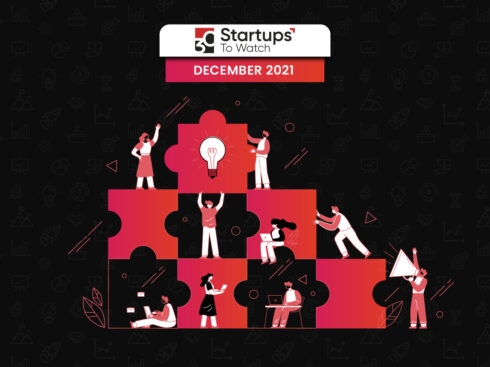SUMMARY
15,472 startups have been recognised under the Startup India programme
13,176 recognised startups have reportedly created 1,48,897 jobs
45% startups have at least one or more women directors
“Never dream of becoming something, if you dream, dream of doing something.”
These words from Prime Minister Narendra Modi have been the foundation for India’s ambitious startup campaign — Startup India, Standup India.
Aimed to make India, one of the largest and vigorous startup ecosystems in the world, PM Modi’s flagship initiative Startup India programme took a slew of policy initiatives to build a strong, conducive, growth-oriented environment for Indian startups and thereby help generate lakhs of job opportunities in the country.
Launched on January 16, 2016, the initiative marked its three-year anniversary last week.
The 19-point Startup India Action Plan envisaged several incubation centres, easier patent filing, tax exemptions, ease of setting-up of business, an INR 10,000 Cr ($1.45 Bn) corpus fund, and a faster exit mechanism, among other things.
And if we look back, it has been a phenomenal growth story so far, especially for a country that was ranked below 100 by the UN Ease of Doing Business Index and had only four states with definitive startup policies three years ago.
Despite all the existing gaps and ongoing challenges such as data protection, angel tax, pending policy approvals and more, today, India has climbed up to the 77th position in UN’s Ease of Doing Business Ranking. It has also been attracting globally-acclaimed investors, multinationals leveraging Indian tech startups to supplement their technology, and is home to more than 39K startups, according to Inc42’s The State of Indian Startup Ecosystem 2018 Report.
Order The Report Now!Not convinced! Let’s have a look at a few numbers!
- Between 2016-2019, 15,113 startups were recognised under the Startup India programme across 492 districts in 29 states and six Union territories
- 55% of the recognised startups are from Tier 1 cities, 27% from Tier 2 cities, and 18% are from Tier 3 cities
- 13,176 recognised startups have reportedly created 1,48,897 jobs with an average of 11 employees per startup
- 45% recognised startups have at least one or more women directors
- 24 Indian states have introduced a startup policy
- The government made 22 regulatory amendments and approved 1,275 patent rebates in the last three years
- More than 288.16K registered users are there on the Startup India hub
- Startup India Hub has addressed 121.83K queries and facilitated 673 startups
- More than 233.27K have registered under the Startup India learning programme
(Source: Startup India)
Here’s a glimpse of Startup India’s journey so far:
Startup India: Enabling A Conducive Ecosystem Beyond ‘Jugaad’
The Startup India Action Plan intended to build a strong support ecosystem that is conducive for the growth of startups and supports the spirit of entrepreneurship in the country. It emphasised on self-compliance, which made the team working at the Startup India Hub a key stakeholder in the ecosystem to work in a hub-and-spoke model and collaborate with various enablers.
With the introduction of the Fund of Funds worth INR 10,000 Cr, the Indian government took the first step in making startups a viable means of livelihood and not just ‘jugaad’ (a Hindi word meaning an improvised or impromptu solution to something). Also, it made the youth of the country look at entrepreneurship as a viable career option.
At the same time, government think tank NITI Aayog launched the Atal Innovation Mission to foster innovation among budding entrepreneurs at the grassroots level. As part of this, 5,441 Atal Tinkering Labs have been set up across the country. In the Union Budget for 2018, the government also allocated $480 Mn (INR 3414.19 Cr) for new-age technologies to further support innovation in the Indian startup ecosystem.
Under the Startup India programmed, startups were defined and redefined. For instance, the startups’ age was also increased from 5 to 7 years (10 in the case of biotech). The government has taken various initiatives to boost the growing startup culture in the country such as fast-tracking of startup patent applications, income tax exemption, and self-certification. It also launched the Startup India Hub to bridge the gap between various stakeholders of the startup ecosystem.
And if that’s not enough, the buzz generated by the programme helped open up a lot of opportunities for startups. Take funding, for instance — according to Inc42 DataLabs, between 2016 and 2018, over $30.3 Bn was invested in Indian startups across 2,550 deals. Also, VC investments saw a moderate rise despite an overall fall in funding in 2018, which indicates a positive sentiment among the investors in the near term.
Startup India: Impact On Individual States
In the past few years, several states have taken the onus to build their own incubators, coworking hubs, etc, to boost the innovation in the state. Earlier, defence minister Nirmala Sitharaman had asked local MPs to set up coworking spaces in their constituencies.
Recently, Rajasthan launched Bhamashah Techno Hub, one of the largest incubators in the country, and Kerala launched one of the biggest coworking spaces in India. Karnataka announced a credit line of INR 2,000 Cr ($281 Mn) for the startup ecosystem in the state, with an aim to have at least 20,000 startups by 2020.
Telangana, Andhra Pradesh, Odisha, Madhya Pradesh, and Gujarat are some other states that offer end-to-end support to startups and have come up great initiatives to boost their respective ecosystems.
DIPP’s State Startup Ranking Framework: The Game Changer
At the core of the Startup India programme are the state startup policies, which the states have started to take seriously under the overview and guidance of Department of Industrial Policy and Promotion (DIPP) and the Centre.
Before Startup India was launched, just four states had their startup policies in place and today, 24 Indian states have introduced their own policies.
The DIPP recently released the State Startup Rankings on the basis of the Startup Policy Framework for 2018 under which Gujarat was rated the ‘Best-performing state’, while Karnataka, Rajasthan, Odisha, and Kerala took the title of the ‘Top-performing states.’
One of the interesting aspects of these rankings was the DIPP’s effort to highlight the strength and weaknesses of each state in a separate state report, in which they highlighted the steps forward for the state to perform better.
Policy Changes Making Slow Progress
Inc42 in its annual year-end series ‘2018 in Review’, noted that the pace of policy formulation has been slow in the country. While some of these policies, like Drone Regulations 1.0, are already in effect, others have been drafted, are being redrafted, or are pending approval. The list includes:
- Personal Data Protection Bill
- Ecommerce Policy
- Epharma policy
- Electric Vehicles Policy, FAME II Extension
- National Electronics Policy
- Draft PSS Amendment Bill and more
On one hand, the lack of policies in these sectors such as epharma and electric vehicles (infrastructural) has been keeping many investors away and on the other, angel tax is a big issue for the startup ecosystem.
The Startup India programme has, in fact, been facing a serious threat because of the angel tax issue and angel investments have been declining in the last two years. Recently, the DIPP issued a notification easing the angel tax exemption process. However, the notification has limited appeal. It neither caters to the concerns of all the startups facing angel tax issues nor addresses the core concern — the DCF (discounted cash flow) valuation method.
Further, this existing angel tax exemption mechanism is applicable only to those DIPP-recognised startups whose aggregate amount of paid-up share capital and share premium after the proposed issue of share does not exceed INR 10 Cr ($1.4 Mn).
Additionally, the approval mechanism will also be applicable to startups incorporated before April 2016. Initially, the exemption was restricted to a maximum 3-years for startups.
Startups that were born before 2012 and those that have received assessment orders have already been excluded from the exemption mechanism.
Is Indian Startup Ecosystem Gunning For The Number 1 Slot?
Overall, Startup India has provided a major push to the country’s entrepreneurial and innovative spirit. According to Inc42’s State Of The Tech Startup Ecosystem Report 2018, India now has 26 unicorns and more than 31 soonicorns. Overall, startups have created a value of $130 Bn.
With global investors such as Sequoia Capital, SoftBank, Tencent, and Alibaba bullish on the Indian tech and consumer internet segment, we are also seeing startups come up in core manufacturing to leverage the Make In India campaign. Just last year, India surpassed Vietnam and gained the second position in the mobile manufacturing segment.
Also, the Indian government’s attempts to build exchange programmes with foreign startups in countries like Germany and SAARC nations has opened new doors of opportunities for the stakeholders in the startup ecosystem.
The formation of international startup corridors with countries like Japan, the US, the UK, Israel, and Portugal, among others, will certainly boost the startup and cross-border investor sentiment as well.
Even as the Modi government enters the last phase of its current term, there are a plethora of issues such as pending policies, angel taxation, infrastructural and bureaucratic hurdles that startups still have to face and need to be resolved at the earliest.
According to a survey of 15K startups, only 18% of the respondents said they actually benefited from the Startup India scheme. Only 163 startups had benefited from the Fund of Funds in the last three years till December 31, 2018, and the fund allocation and distribution is coming down further. This poses a question over the efficacy and cost-effectiveness of the scheme.
The government needs to address each of these concerns before we can even think of an ecosystem like that of Israel or Silicon Valley.
Gender parity is still an issue in the startup ecosystem and the revelations of #MeToo left the Indian startup ecosystem disturbed.
But amid the good and the bad, the Indian startup ecosystem continues to grow manifold and carve out an ever-expanding niche for itself in the global ecosystem.
The article has been co-written by Bhumika Khatri and Suprita Anupam.



























